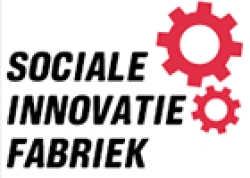It is possible to assess the economic impact of companies in quantitative terms, yes indeed. But how do you measure and assess the societal impact of your activities? With the support of the Flemish government agency for Innovation by Science, The Sociale Innovatiefabriek [Social Innovation Factory] has initiated action research about assessing and demonstrating societal impact.**
In brief: Together with some coaches who are interested to learn more about the assessment process, they will coach and evaluate 20 businesses/organizations in their efforts to realize impact assessment so it will help them to use findings on impact in their (operational & strategic) management tools, based on the social value chain (input, activities, output, outcome & impact).
Societal impact is often used to refer to the societal results of an organization or social business. For example, is your theory of change model actually functioning as you think is it? The main objective of the action research is to improve understanding about societal results among businesses and organizations. By doing so, organizations can take their activities’ societal impact into account in their daily management, even for fundraising or marketing reasons.
But how do you assess incremental behavioral change that possibly results from your activities? How do you assess societal impact in the absence of ISO-standards or any indicator? These are difficult questions to answer due to the lack of practical experience with defining and evaluating societal impact, according to the Social Innovation Factory.
“When we ask innovators about how they want to generate impact, what impact they want to generate and how they are planning to monitor impact, they find it very difficult to answer”
How does the Social Innovation Factory want to achieve this? By tailor-made assistance. The Social Innovation Factory will not invent a new tool to assess societal impact, but instead provides organizations with tailor-made assistance based upon existing tools and models that will be piloted and refined in order to make them feasible and realizable. For many organizations, the numerous existing tools are like a jungle difficult to tear through. Therefore, the Social Innovation Factory will create an open-source platform where innovators are directed towards the right tool for their organization, in order for them to find the do’s and don’ts and to learn from each other’s experiences. Another important deliverable of the action research is a management-tool based upon existing tools and models that will include both economic and societal Key Performance Indicators (KPI’s). So based on the practice of those 20 diverse businesses and organizations, the Social Innovation Factory intends to find a broad set of ‘soci(e)tal’ indicators.
Bearing in mind the growing attention to methods and tools for measuring and evaluating (social) innovations’ societal impact, exemplified by the action research initiated by the Social Innovation Factory or, for example, the European project on measuring impact and enhancing visibility of the third sector, also CASI can become a member of a community of practice when it comes to managing and evaluating (sustainable) innovations.
** The Social Innovation Factory is a multi-stakeholders network that helps innovative entrepreneurs and organizations to develop breakthroughs resulting from new services, products, organizational models or concepts. They support partnerships between the civil and corporate sector and help them reach the market, society or funding. The original interview with Caroline Godts and Tomas De Groote that formed the basis of this blog post can be found on the website of the Sociale Innovatiefabriek and Kwinta.
Relevant themes:
Public participation, Sustainable innovation
Relevant tags: Social innovation
























